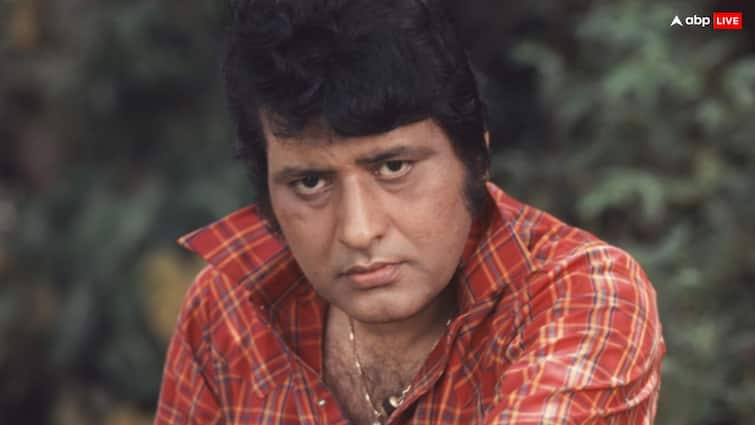Bollywood has lost a true legend. Veteran actor and filmmaker Manoj Kumar, known for his iconic patriotic roles and classic films, passed away at the age of 87. The actor, whose films shaped the narrative of national pride in Indian cinema, died in the early hours at Kokilaben Dhirubhai Ambani Hospital in Mumbai.
His death marks the end of a golden chapter in Indian film history. Fans, celebrities, and leaders across the country are remembering him with deep emotion and heartfelt tributes. The actor had not been well for several months and was under treatment for serious health issues.
Final Journey: When and Where is Manoj Kumar’s Funeral?
The late actor’s body will be kept at the hospital for the day. His last rites will be held at 12 PM on the following day at Vile Parle Hindu crematorium in Mumbai. While his son Kunal Goswami is already in the city, many other family members are abroad and are expected to arrive soon.
The family has decided to wait for them so that they can pay their final respects. As the news of his demise spreads, close friends from the film fraternity, politicians, and fans are expected to gather at the crematorium to bid him a tearful farewell.
Cause of Death: A Long Battle with Health Issues
According to medical reports, Manoj Kumar died due to acute myocardial infarction, commonly known as a heart attack, triggered by cardiogenic shock. He was also suffering from decompensated liver cirrhosis for the past few months.
This chronic condition had severely impacted his health. Even though he was fighting bravely, his body finally gave up early in the morning. The hospital confirmed that the actor passed away around 3:30 AM.
Son Kunal Goswami Remembers His Father
Speaking to the media, Kunal Goswami, Manoj Kumar’s son and a former actor himself, expressed his grief. With tears in his eyes, he shared,
“My father passed away today morning at 3:30 at Kokilaben Hospital. He was unwell for quite some time but never gave up. He faced every health issue with strength. With God’s grace and Sai Baba’s blessings, he stayed strong till the end.”
Kunal also thanked fans and well-wishers who have been praying for his father’s recovery. He added that the family is overwhelmed with the love and respect Manoj Kumar has received over the years.
The End of an Era in Indian Cinema
The passing of Manoj Kumar is not just the loss of an actor; it’s the end of an era. Known as “Bharat Kumar”, he gave India some of the most emotional and patriotic films of all time. Whether it was Upkar, Purab Aur Paschim, or Roti Kapda Aur Makaan, his movies weren’t just entertaining—they carried deep social and national messages.
He was among the few filmmakers who blended storytelling with patriotism, something that became his signature style. His contribution to Indian cinema is unmatched and will continue to inspire future generations.
A Career Decorated with Awards and Love
Manoj Kumar was not only loved by the audience but also highly respected by the film industry and the Indian government. His work earned him:
- National Film Award for Best Direction
- Seven Filmfare Awards across various categories
- Padma Shri, India’s fourth-highest civilian award
- Dadasaheb Phalke Award, the highest honour in Indian cinema
Each of these recognitions tells the story of a man who lived and breathed cinema. His movies became instruments of national pride, urging people to think about India’s social issues, soldiers, and unity.
Early Life and Film Journey
Manoj Kumar was born as Harikishan Giri Goswami on July 24, 1937, in Abbottabad, which is now in Pakistan. Post-partition, his family moved to Delhi. As a child, he was deeply inspired by freedom fighters, and that inspiration reflected in his later films.
He adopted the screen name Manoj Kumar after being impressed by the performance of Dilip Kumar in the film Shabnam. His debut came in the 1950s, but real fame came with the movie Shaheed in 1965, where he played Bhagat Singh. From there, he never looked back.
Iconic Films That Made Him ‘Bharat Kumar’
Some of the most memorable films of Manoj Kumar’s career include:
✅ Upkar (1967) – The film that earned him the title “Bharat Kumar”. It highlighted the sacrifice of farmers and soldiers.
✅ Purab Aur Paschim (1970) – Focused on Indian values and culture in the face of Western influence.
✅ Roti Kapda Aur Makaan (1974) – Addressed the basic needs and struggles of common people.
✅ Kranti (1981) – A historical drama that united an entire generation with its patriotic theme.
Each film was more than just entertainment—it was a message to the nation.
Tributes Pour In from Across the Country
The news of Manoj Kumar’s passing has brought an outpouring of emotions.
Prime Minister Narendra Modi tweeted:
“Manoj Kumar Ji’s films reflected the dreams and hopes of India. His contribution to Indian cinema is unforgettable. Condolences to his family and admirers.”
Several actors including Amitabh Bachchan, Anupam Kher, Kangana Ranaut, and Ajay Devgn also paid their respects, calling Manoj Kumar a true nationalist, a filmmaker of substance, and a legend of the silver screen.
Legacy That Will Live On
Even though Manoj Kumar is no longer with us, his legacy will continue to live in the hearts of millions. His films still play on television and OTT platforms, reminding viewers of a time when cinema was deeply rooted in Indian identity, values, and pride.
His influence is clearly seen even in modern-day films that try to mix social messages with storytelling—a style he championed long before it became common.
Manoj Kumar’s journey—from a young boy inspired by patriotism to a filmmaker who shaped Indian consciousness—is nothing short of legendary. He may have left the world physically, but his cinematic soul remains immortal.


